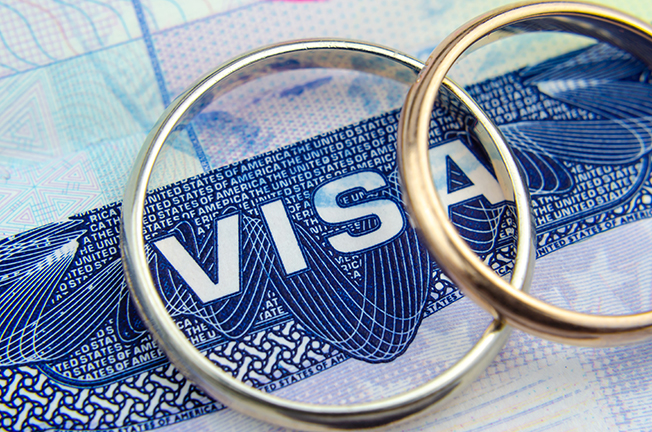
Which is the better option?
Now that you have had your family petition approved, it’s time to apply for the green card. The question here is whether your spouse is eligible to get their green card from within the U.S., or whether Consular Processing (applying from overseas) is the best option. Let me start by saying that, for some people, the choice is no longer theirs.
If your spouse has an immigration violation on their record, there is a big chance they will need the consular process. Some examples of these are people who: entered without a visa, presented false documentation or lied to an immigration officer to obtain an immigration benefit, certain criminal convictions, or aided in or actually helped bring people into the U.S. unlawfully (even if it was their own children). Other violations such as unlawful employment or overstaying a visa may apply if the petitioning spouse is a permanent resident, not a U.S. citizen. These violations are known in our field as “inadmissibilities” and they are extremely nuanced and very fact specific. If your partner has any kind of potential immigration violation on their record, I highly recommend you speak to an experienced immigration attorney who can give you the best advice for your situation.
An experienced attorney can screen your spouse for any violation; they can also request a copy of your spouse’s immigration record to verify whether certain penalties apply. In addition, they can also advise on the existence of potential waivers (or pardons) of the penalties of these violations. I cannot emphasize these enough. Whatever the cost of a consultation, having the peace of mind of knowing you are in the clear has no price. Sadly, I have, consulted with many individuals who trusted unlicensed individuals or “notarios” (Spanish for “notaries”) to file petitions for their spouses who, unknowingly, had one of these inadmissibilities on their record. The consequences were catastrophic: arrests, imprisonment, and deportation. Even if after the consultation you decide to file on your own, have your case screened by a licensed attorney. Click here for my pointers on how to avoid being a victim of an unlicensed practitioner.
Assuming that your spouse is in the clear and no prior violations exist, the choice is yours on whether you want to get your green card in the U.S. or overseas. These are questions I ask my clients to determine the best option for them:
- Where do you want to reside throughout the duration of the process? This is an important question given the lengthy processing times for a green card (currently about twelve months). If your spouse is residing overseas, they have a stable job and cannot afford to wait for work authorization to come while they wait in the U.S., it might be best if you pursue consular processing. Leaving a lucrative job to come to the U.S. and wait four to six months for work authorization might be impossible for some. Also, if children are involved, parents may opt to do consular processing so that their children can finish the school year, or if you have children from a previous relationship, you can work out custody agreements prior to departing your country.
- Are you comfortable with not being able to leave the U.S. while your process is pending?
One negative side to adjustment of status is that you cannot leave the U.S. without authorization or you risk abandoning your green card (regardless of your intent, it’s an automatic presumption). While you can file for a travel permit while you wait, the wait times for these permits are so lengthy that some have often received the green card before the actual permit. In other words, if you need to be able to travel outside the U.S. while your green card is pending, consular processing might be a better option.
- In what country are you eligible for consular process?
The norm is that you attend your consular interview in the embassy of the country of which you are a national or citizen. In some cases, some embassies experience severe backlogs due to high demand of petitions for citizens of that country (e.g., India, China or Mexico), or some countries where there is civil strife or conflict (Ukraine, Syria, Israel). In those cases, if someone is eligible to adjust their status in the U.S., I advise against consular processing because of the difficulty and the challenges in their local embassy. The opposite is also true. In some cases, certain embassies are a lot easier to work with and may even be more efficient than attempting to adjust in the U.S. In those cases, consular processing might be a better option.
Deciding between consular processing or adjustment of status may seem like an impossible choice. As I often tell my clients, “Every case is different; it depends.” However, an experienced attorney can help you navigate your options and land successfully.























































































































